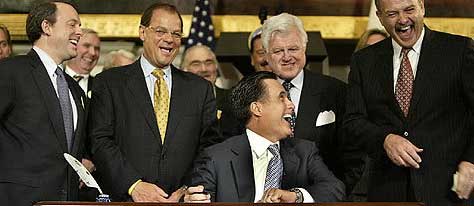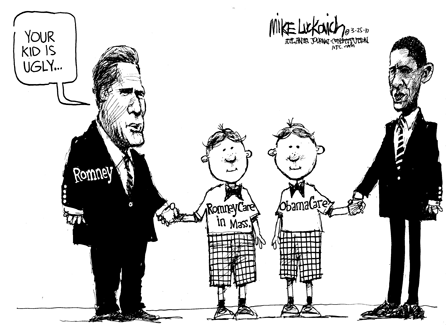 No, it’s not happening yet (that I know of), but the RIAA and MPAA are pushing hard to establish the legal precedent of government surveillance of average citizens’ private in-home activities.
No, it’s not happening yet (that I know of), but the RIAA and MPAA are pushing hard to establish the legal precedent of government surveillance of average citizens’ private in-home activities.
Tom’s Guide reports:
Big Brother is watching you. Actually, it's the RIAA and the MPAA, especially if you're parked on a BitTorrent client. The Electronic Frontier Foundation reports that both organizations--along with a few others--want to take the file-monitoring process a huge step further by infiltrating consumer PCs and deleting the infringing content off their hard drives. How? Through "anti-infringement" spyware developed and enforced by the government.
This is no joke.
"There are several technologies and methods that can be used by network administrators and providers...these include [consumer] tools for managing copyright infringement from the home (based on tools used to protect consumers from viruses and malware)," reads a caption in a joint comment (pdf) filed by the MPAA and RIAA.
The joint comment goes on to suggest other means of copyright enforcement including a mandatory scan on all internet connections to interdict transfers of illegal content, physical searches at all borders of personal media players, laptops, and USB sticks. There's even an indication that the parties want to enforce international bullying to force other countries to put similar policies in place.
A couple of observations are in order.
First, the only reason the RIAA and MPAA could even dream of getting the federal government to do something like this is that they know the fedgov recognizes no meaningful limits on its power. Industries take advantage of this fact all of the time – using the government as a bludgeon against one’s competitors has become a time-honored tradition in this country – but the RIAA/MPAA proposal goes beyond what we normally see.
Many people who will complain that this is an unconstitutional invasion of privacy and a denial of due process will, the next day, demand that the government provide health care, jobless benefits, welfare, etc. We can’t have it both ways. Either the federal government is bound by the U.S. Constitution, or it isn’t.
Second, is there any real difference between government-authored spyware on our computers and government-installed surveillance cameras in our homes? Both would have the same official purpose – crime prevention. I wonder if RIAA and MPAA executives would consent to government video surveillance of their mansions, “just in case” they decided to do something illegal.


